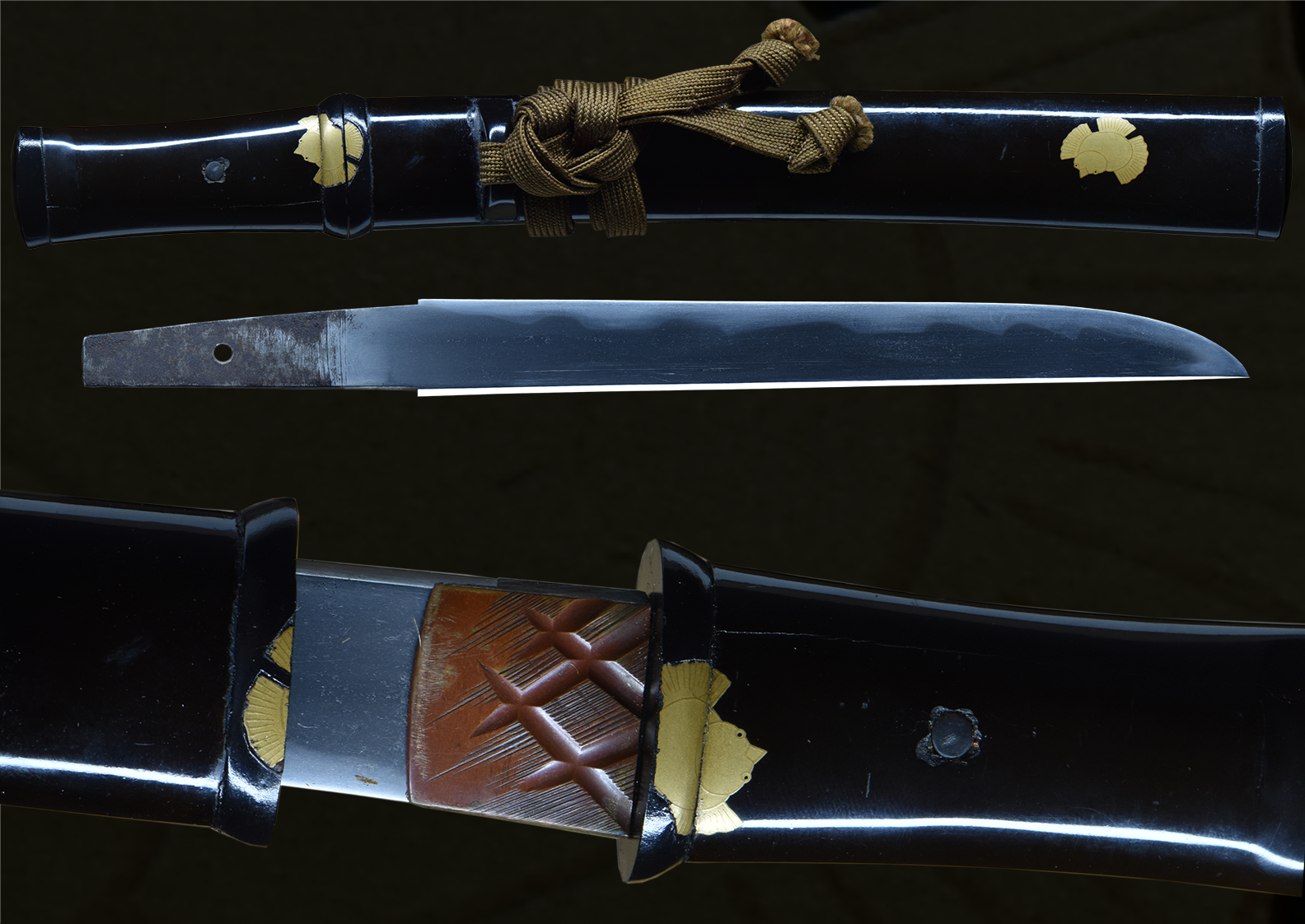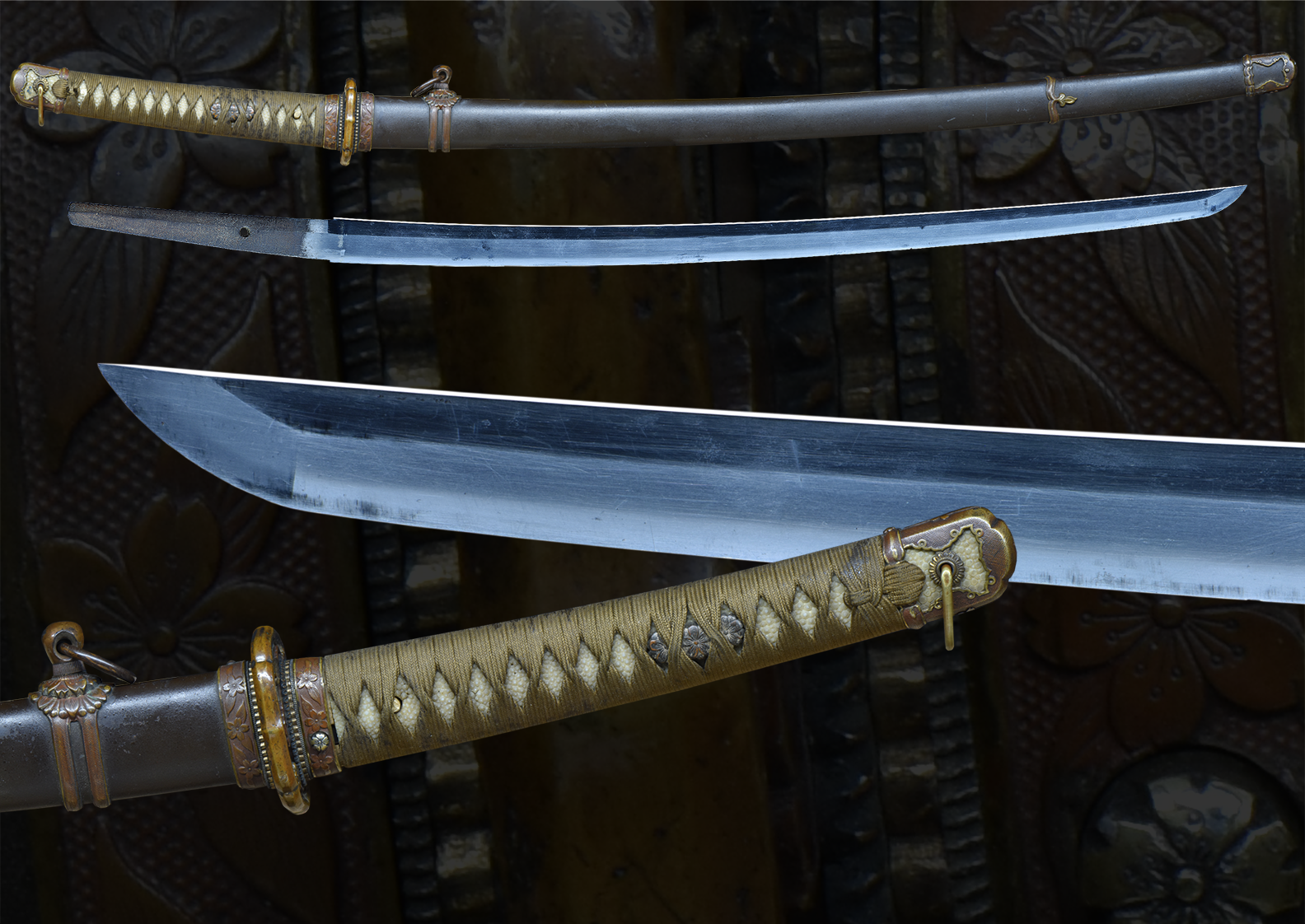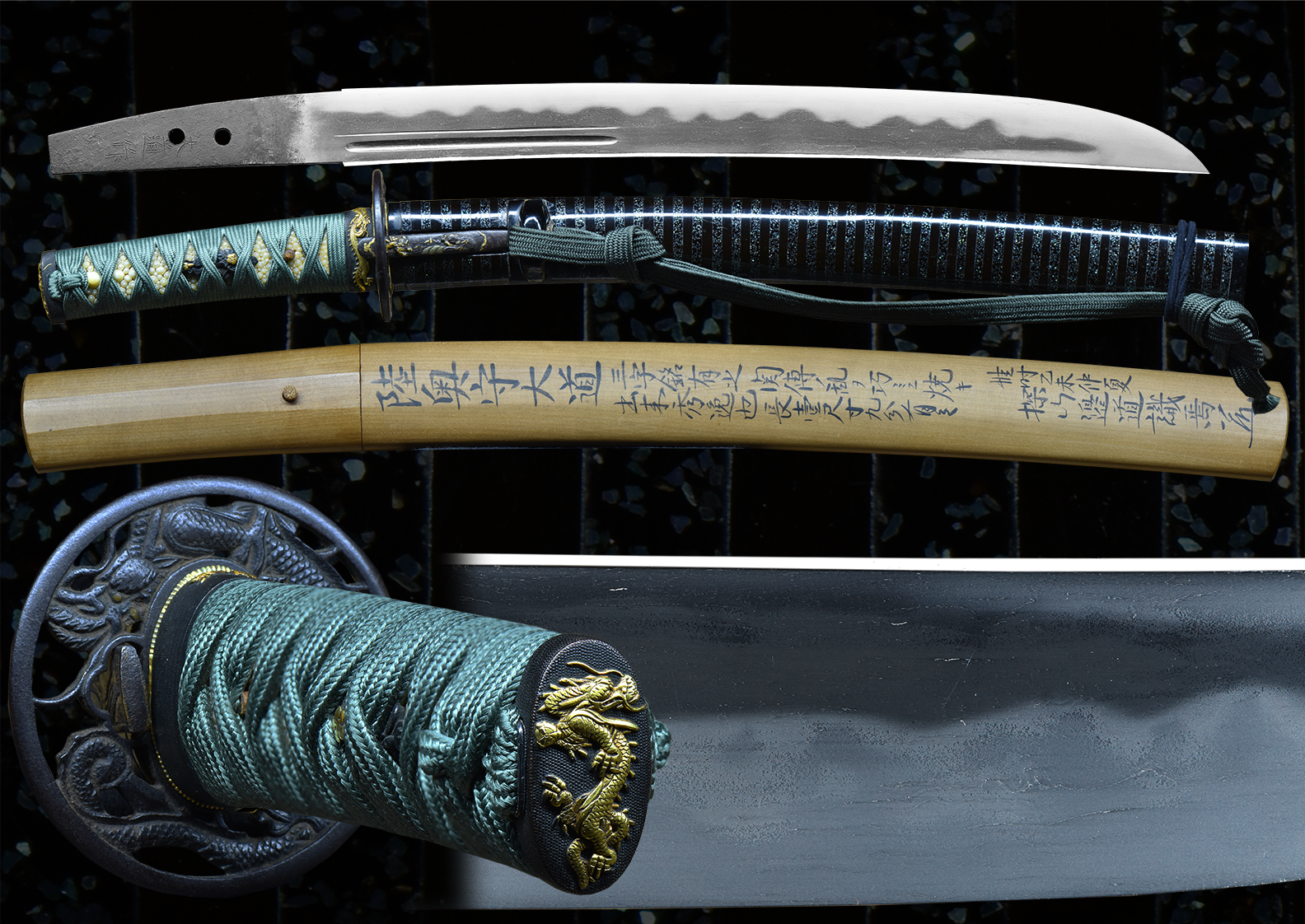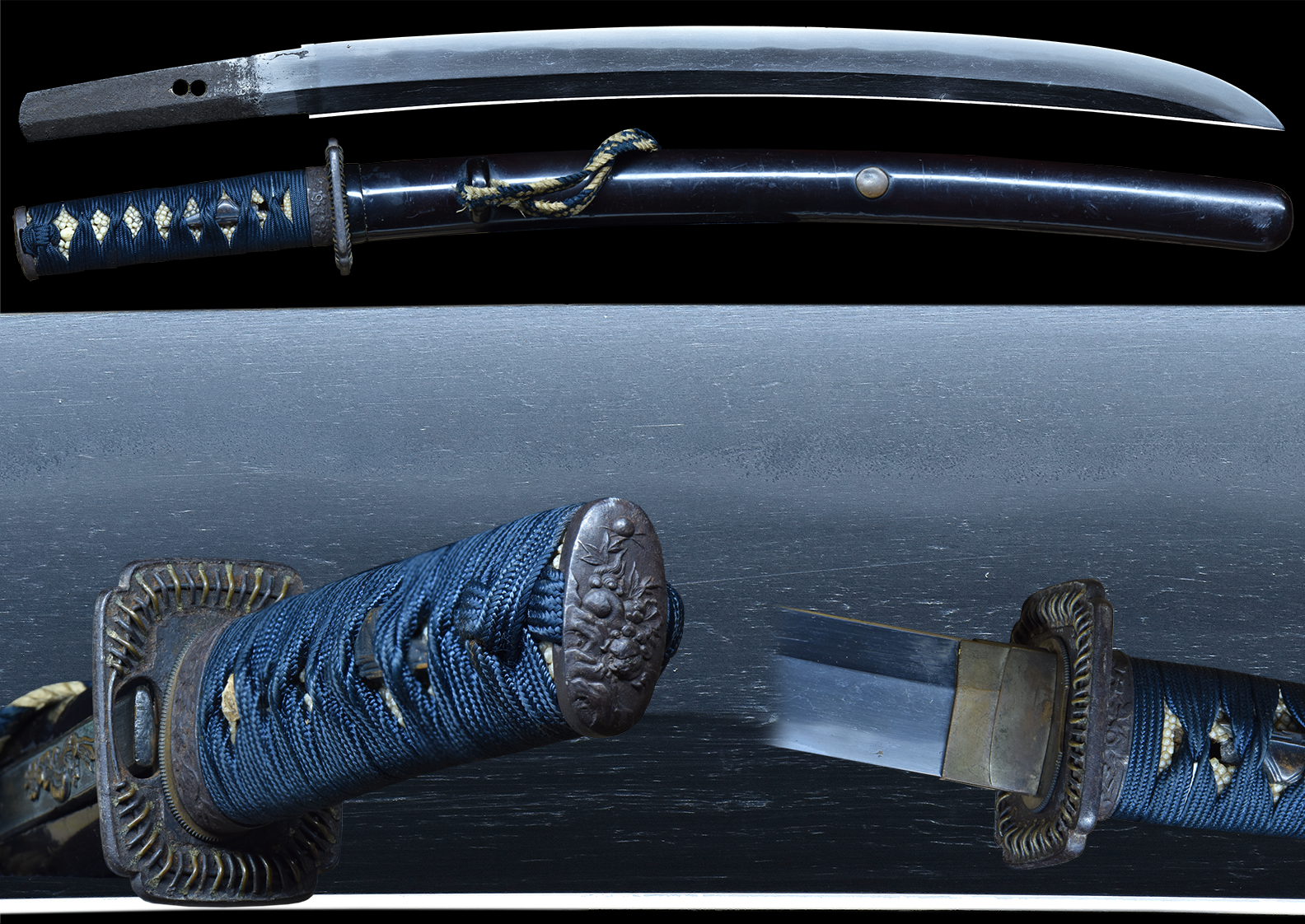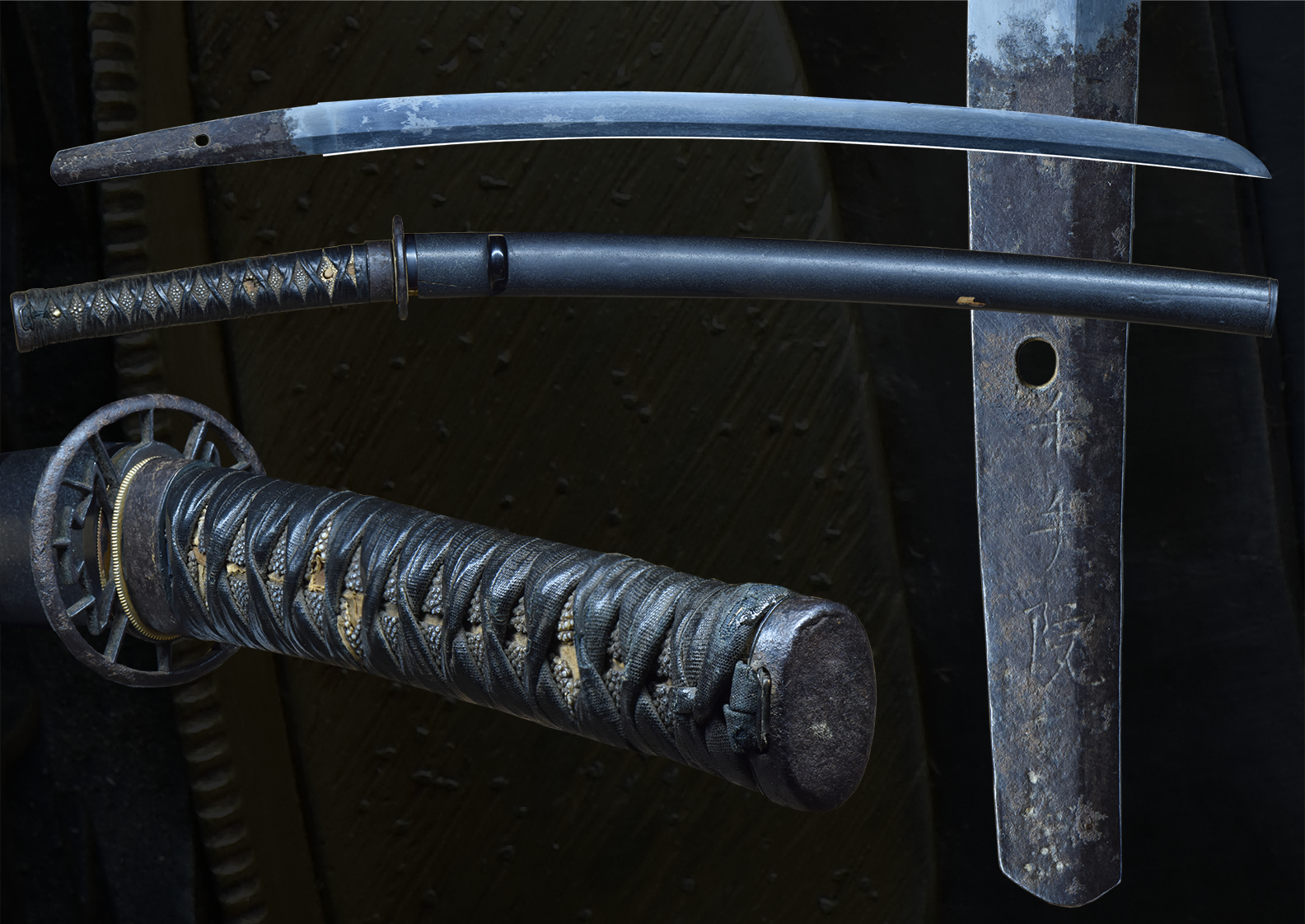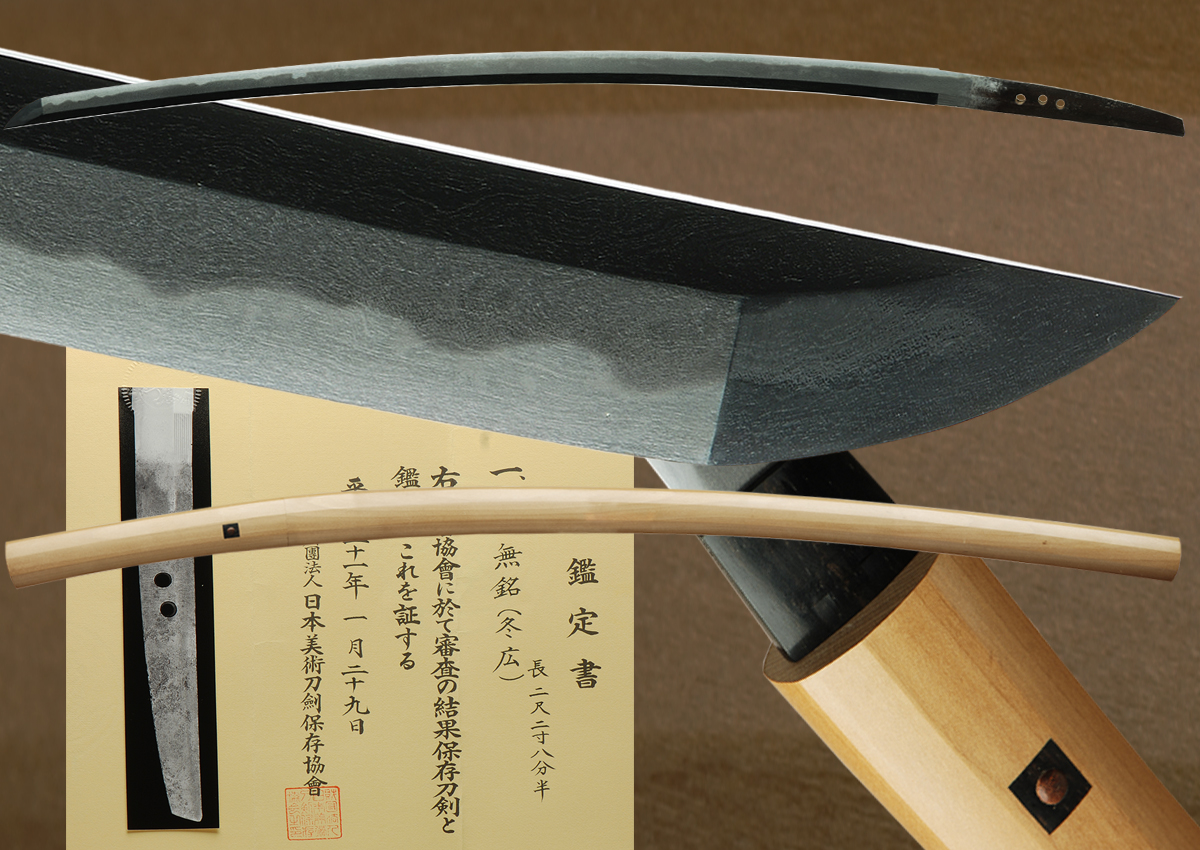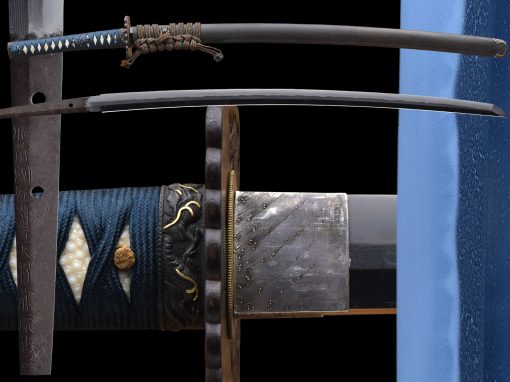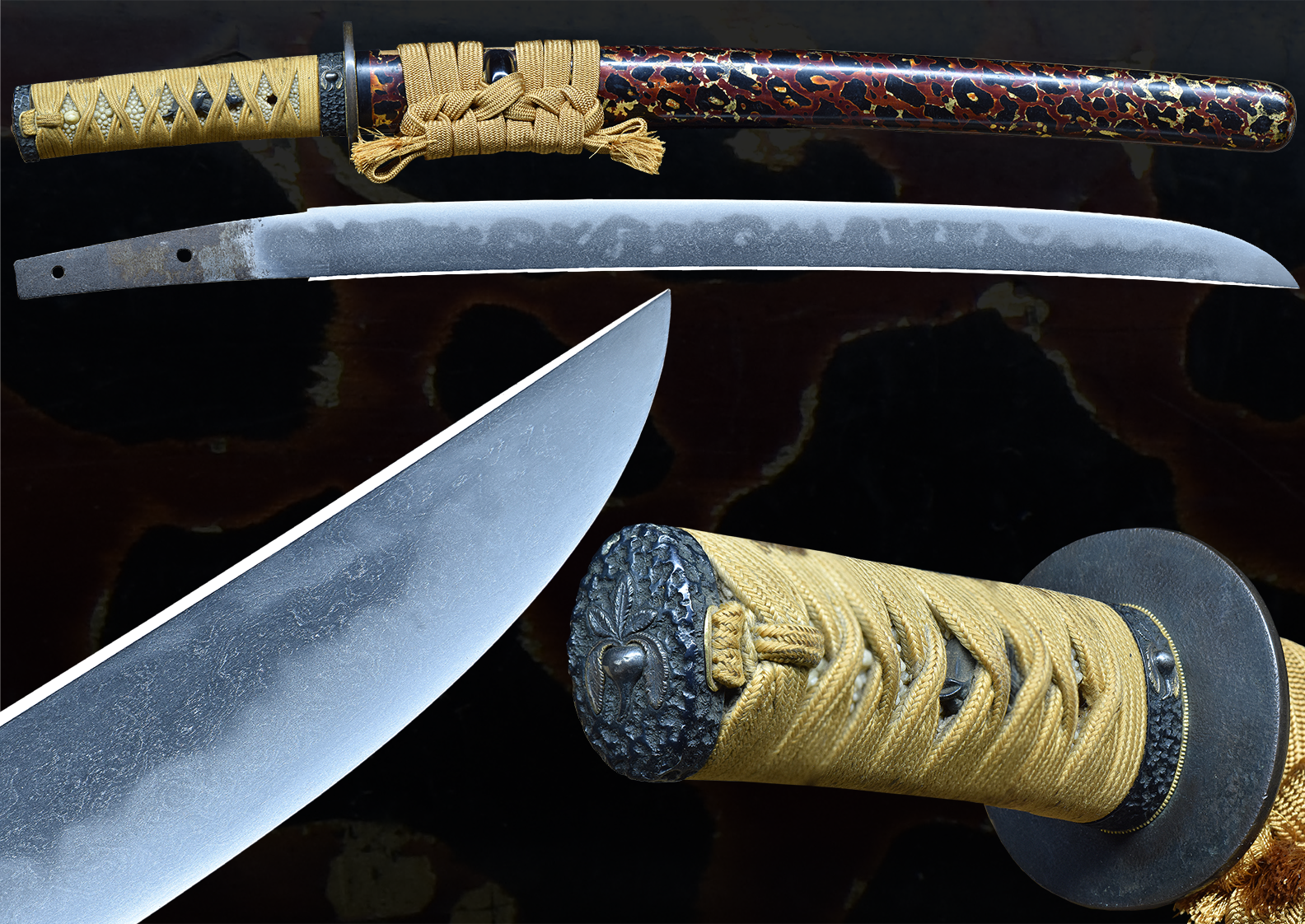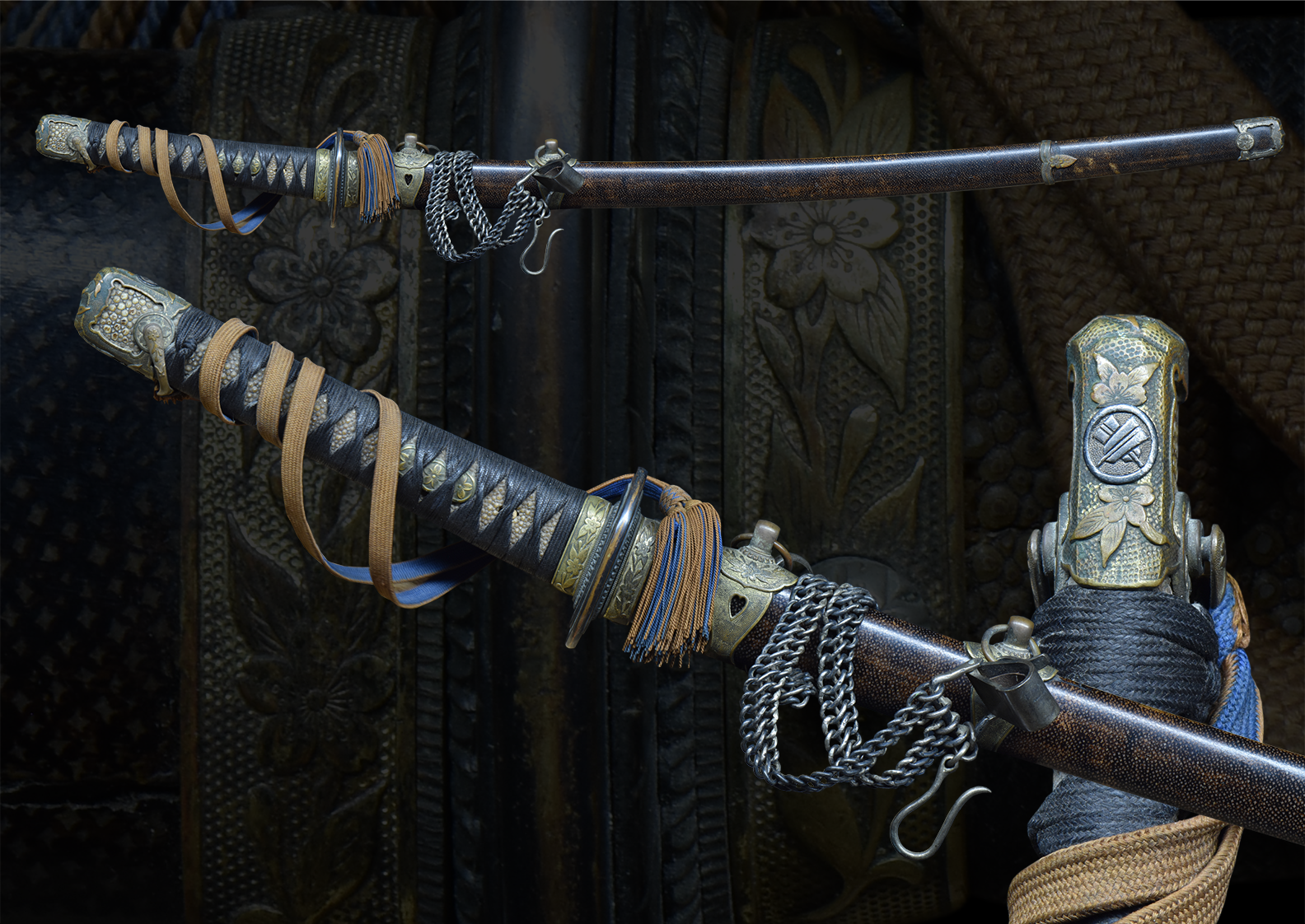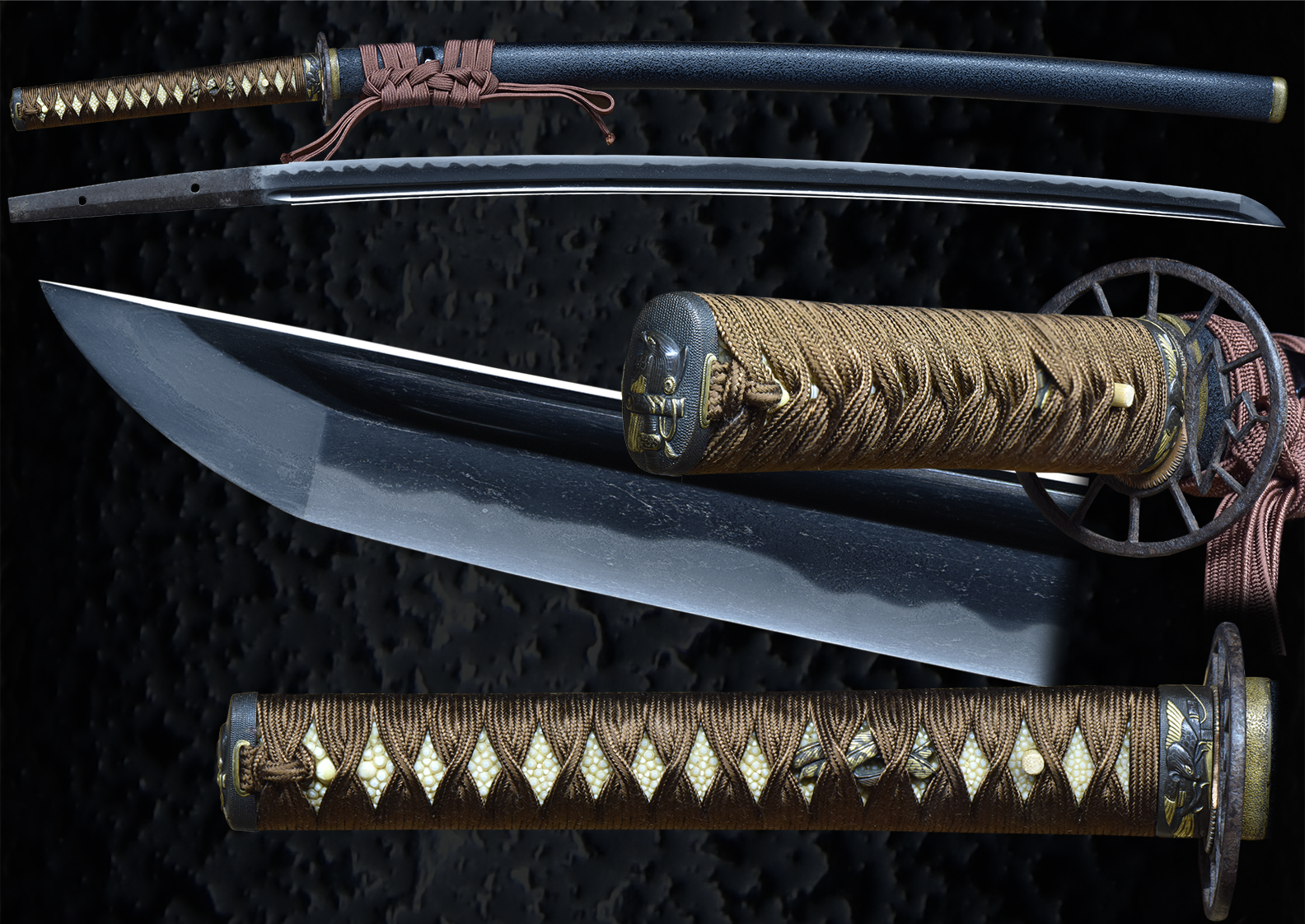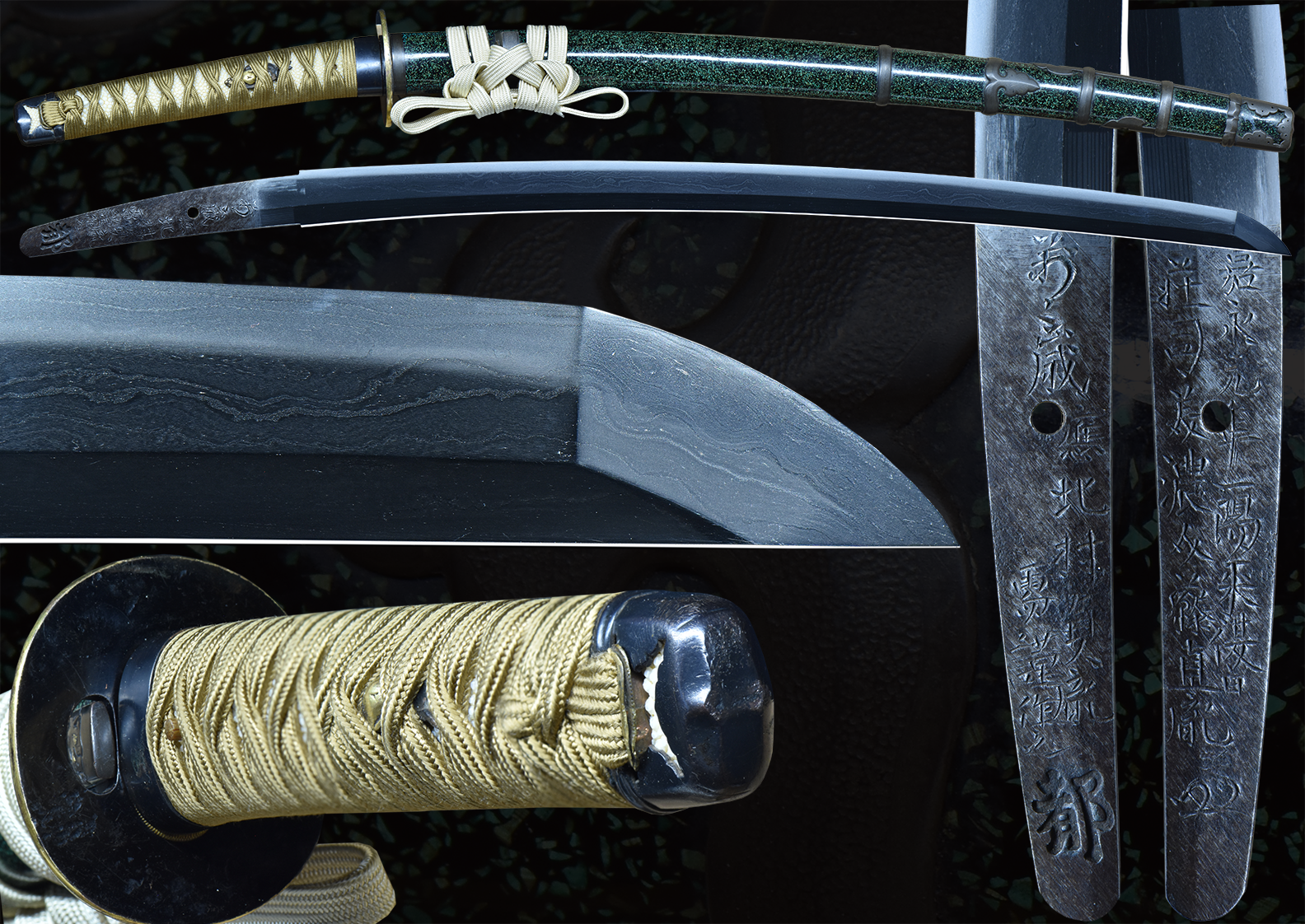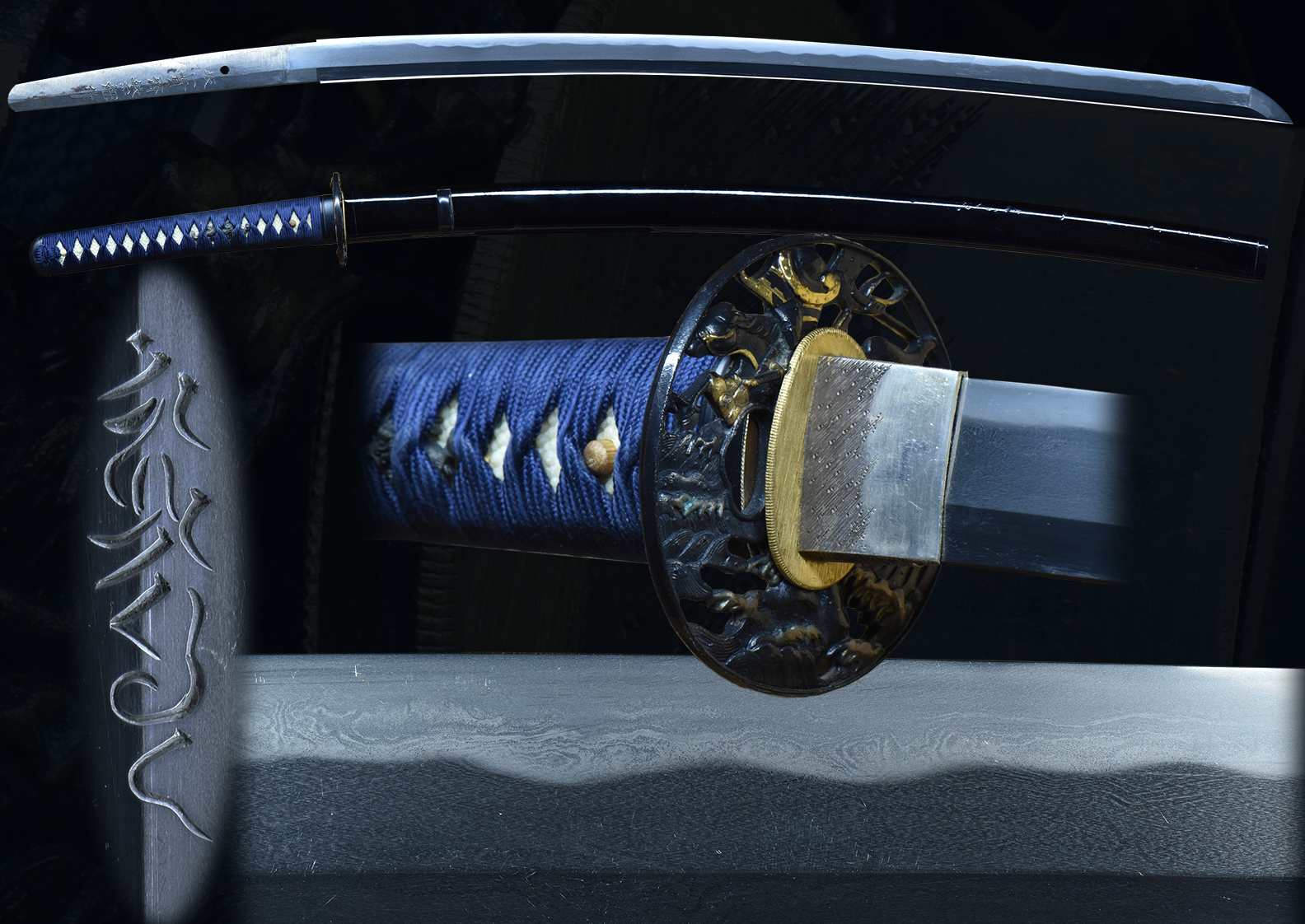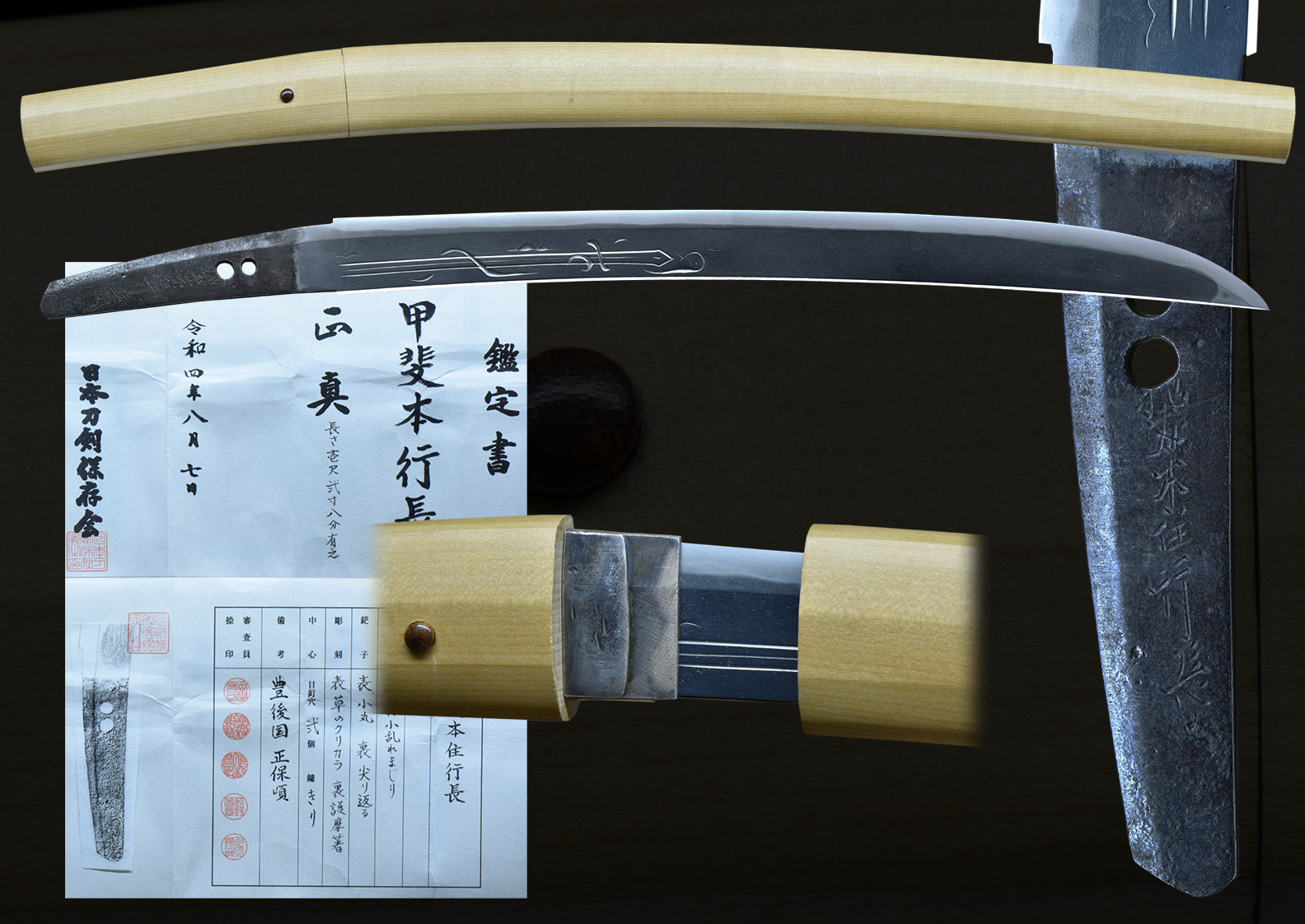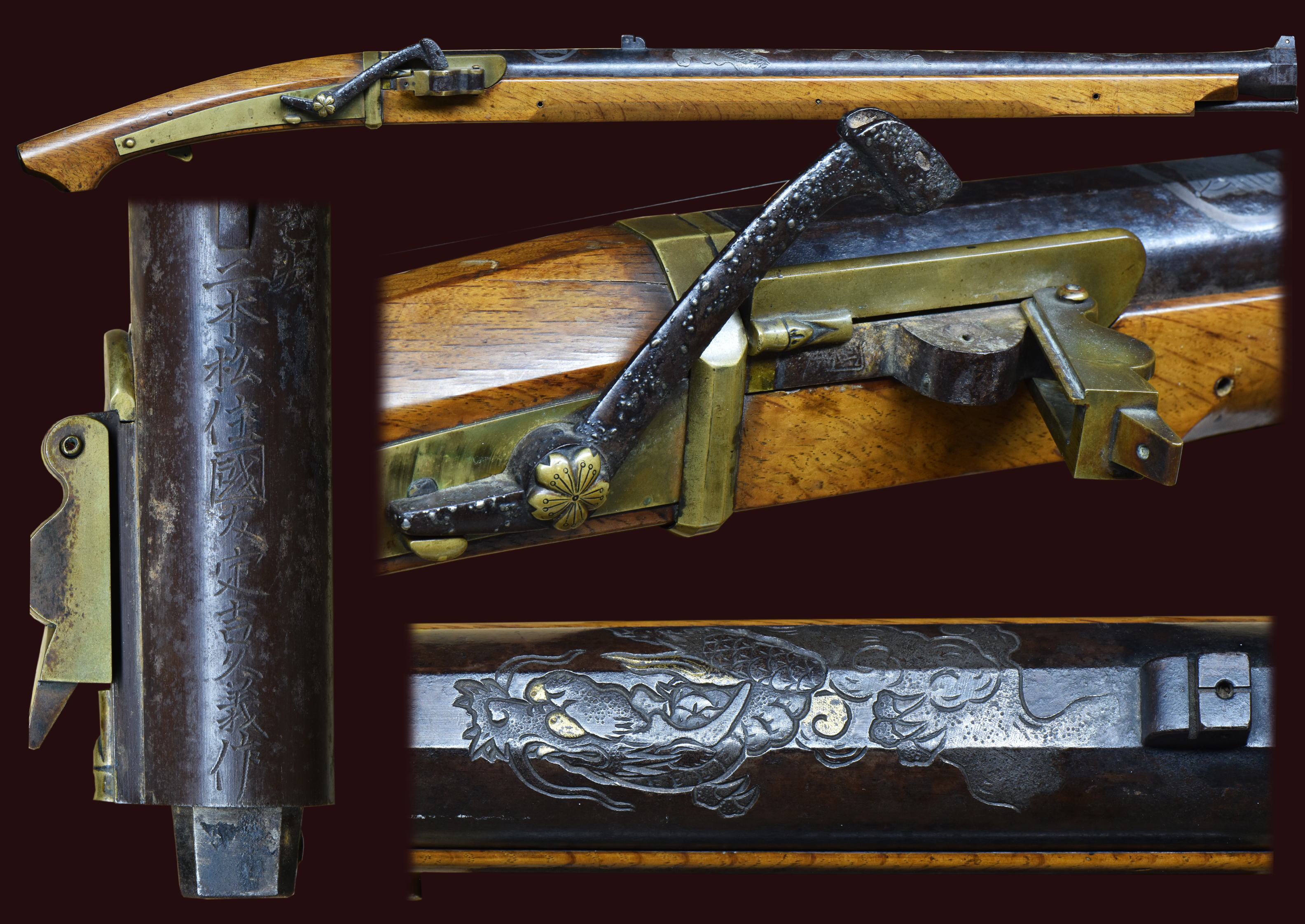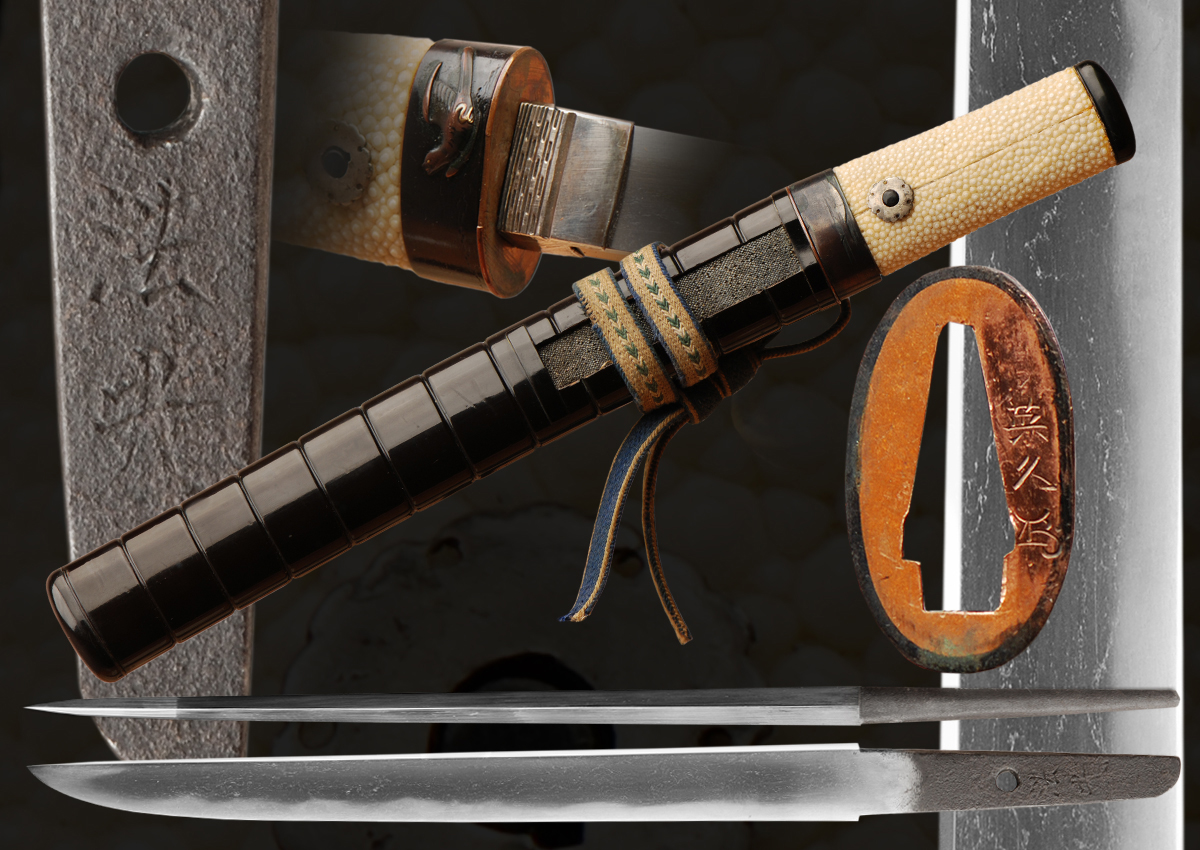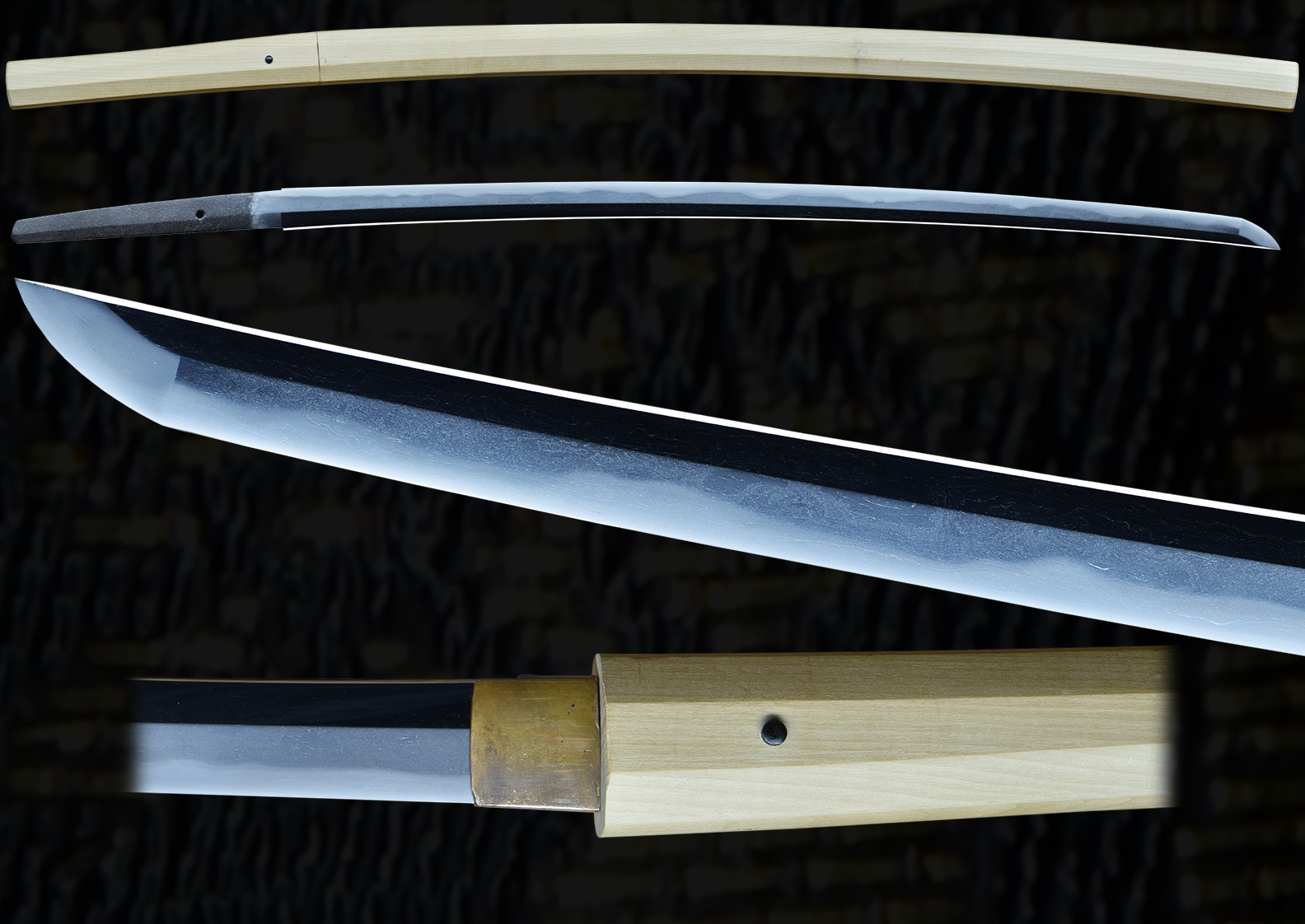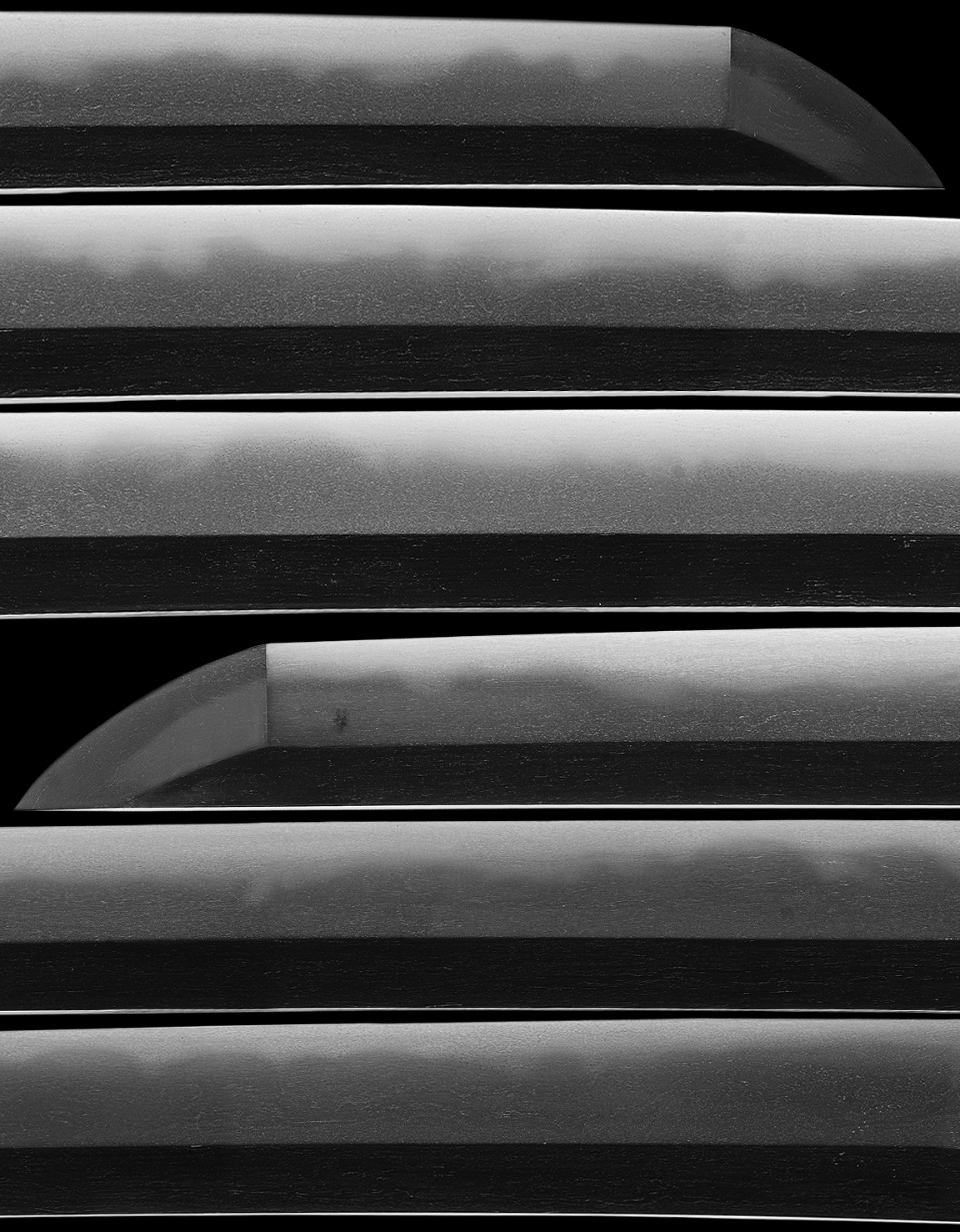Item description:
fantastic early Shinto katana, this sword is reminiscent of old koto work. The blade is a signed piece with spectacular hada and a vibrant hamon. It is signed and Ubu, a long sword at 27-7/8″. This blade is a true beauty. The hada is a well worked Mokume with Itame and covered in ji-nie . There is chikei and much nie all over. The hamon is made up of a gunome base in notare with small clusters of nie the length of the blade. There is sunagasi and kinsuji as well as ko-nie. An impressive sword with much to appreciate.
The Quintessential Shinto era Japanese Samurai sword, this blade is ubu and maintains the original signature and attributes. The blade comes with original military mounts. It also has a Shirasaya with sayagaki from Tanobe-San of the NBTHK. The blade itself is an exciting blend of Notare and Gunome with a beautiful thick frosting of nie and nioi. The itame hada is tightly forged and very well made.
Info from the Fujishiro Taikon:
NOBUYOSHI SHINANO NO KAMI SHODAI [SHÔHÔ 1644 YAMASHIRO] SHINTÔ CHÛJÔSAKU
He lived in Heianjô, and (blades in which he inscribed) KIKU MON are also seen. He was a smith between the years of Kan’ei and Kanbun. (Wazamono)
Signatures: SHINANO NO KAMI FUJIWARA NOBUYOSHI
YAMASHIRO KUNI FUJIWARA NOBUYOSHI
Plate III: SHINANO NO KAMI FUJIWARA NOBUYOSHI
Page 206
NOBUYOSHI SHINANO NO KAMI NIDAI [ENPÔ 1673 YAMASHIRO] SHINTÔ CHÛJÔSAKU
He is also called Takai Kinsaburô, and he also lived in Osaka. At first he called himself FUJIWARA, and he later changed to MINAMOTO.
Signatures: RAKUYÔ JÛ SHINANO NO KAMI MINAMOTO NOBUYOSHI
SHINANO NO KAMI FUJIWARA NOBUYOSHI
Plate I: RAKUYÔ JÛ SHINANO NO KAMI NOBUYOSHI
More info on Nobuyoshi:
NOBUYOSHI (信吉), 1st gen., Shōhō (正保, 1644-1648), Yamashiro – “Shinano no Kami Minamoto Nobuyoshi” (信濃守源信吉), “Shinano no Kami Fujiwara Nobuyoshi” (信濃守藤原信吉), “Taiai Shinano no Kami Nobuyoshi” (高井信濃守信吉), “Rakuyō-jū Takai Shinano no Kami Fujiwara Nobuyoshi” (洛陽住高井信濃守藤原信吉), “Yamashiro no Kuni Fujiwara Nobuyoshi” (山城国藤原信吉), “Yamashiro no Kuni-jūnin Nobuyoshi” (山城国住人信吉), real name Takai Kinzaburō (高井金三郎, the first name also reads Kanesaburō), he came from the Mishina school and carved also a chrysanthemum onto his tangs, he used first the clan name Fujiwara and changed later to Minamoto but there exist also early works which are already signed with Minamoto, his younger brother was Echizen no Kami Nobuyoshi (越前守信吉) with whom a joint work exists, we know date signatures from the Shōhō era to the twelfth year of Kanbun (寛文, 1672), excellently tempered suguha or gunome in nie-deki with a wide nioiguchi, wazamono, chūjō-saku
The wearing of daishō was limited to the samurai class, and became a symbol or badge of their rank. Daishō may have became popular around the end of the Muromachi period (1336 to 1573)as several early examples date from the late sixteenth century.An edict in 1629 defining the duties of a samurai required the wearing of a daishō when on official duty. During the Meiji period an edict was passed in 1871 abolishing the requirement of the wearing of daishō by samurai, and in 1876 the wearing of swords in public by most of Japan’s population was banned; this ended the use of the daishō as the symbol of the samurai, and the samurai class was abolished soon after the sword ban.
TO NOTE:
WE HAVE POSTED A WAKAZASHI BY THE SAME SMITH, THIS WOULD BE A GREAT PAIR TO MOUNT AS A DAISHO. A POTENTIALLY GREAT PROJECT AND INVESTMENT.
Please follow this link to see the matching wakazashi to this katana WAKAZASHI LINK
- Mei: [kiku-mon] Shinano no Kami Fujiwara Rai Nobuyoshi
- Date: (正保, 1644-1648)
- Nagasa: 27-7/8 inches
- Sori: 12.0 mm
- Width at the ha-machi: 30.2 mm
- Width at the yokote: 20.2 mm
- Thickness at the mune-machi: 7.1 mm
- Construction: Shinogi zukuri
- Mune: Iori
- Nakago: Ubu
- Kitae: Itame/mokume
- Hamon: Midare Gunome
- Boshi: Maru
- Condition: Good polish
Sayagaki info on scabbard:
洛陽住信濃守信吉
菊紋添フ地刃出来宜敷 志津写ノ感有之候 刃長貮尺参寸三分有之 平成拾四壬午暦卯月上浣探山邉道鑒并誌
Rakuyô-jû Shinano no Kami Nobuyoshi
Kiku-mon sou jiba deki yoroshiku
Shizu-utsushi no kan kore ari sôrô
Hachô 2 shaku 3 sun 3 bu kore ari
Heisei jûyon mizunoe-umadoshi uzuki jôkan Tanzan Hendô kangamite narabi ni shirushite + kaô
Shinano no Kami Nobuyoshi, resident of Kyôto
This blade bears a chrysanthemum crest, is of an excellent deki, and can be seen as a Shizu copy.
Blade length ~ 70.6 cm
Examined and written by Tanzan Hendô [Tanobe Michihiro] in the first third of April 2002, year of the horse + kaô
Email us if your interested in this item and remember to include the order number for this item: fss-706.
Translation of papers:
kantei-sho (鑑定書) No 147115 katana, mei: [kiku-mon] Shinano no Kami Fujiwara Rai Nobuyoshi (信濃守藤原来信吉)
nagasa 2 shaku 3 sun 3 bu Migi wa tô-kyôkai ni oite shinsa no kekka, tokubetsu-hozon-tôken to kantei-shi kore o shô-suru.
(右は當協會に於て審査の結果特別保存刀剣と鑑定しこれを証する)
Heisei jûyonen nigatsu jûyokka (平成十四年二月十四日)
zaidan-hôjin (財團法人): Nihon Bijutsu Tôken Hozon Kyôkai (日本美術刀劍保存協會)
Appraisal
katana, signed: [chrysanthemum crest] Shinano no Kami Fujiwara Rai Nobuyoshi
nagasa ~ 70.6 cm According to the result of the shinsa committee of our society we judged this work as authentic and designate
it as tokubetsu-hozon-tôken. February 14th 2002 [Foundation] NBTHK
For Sale
